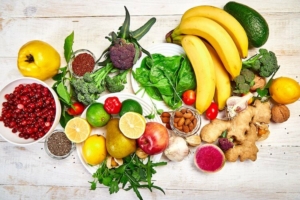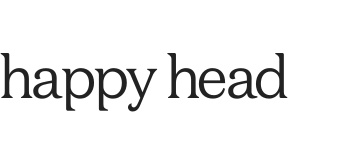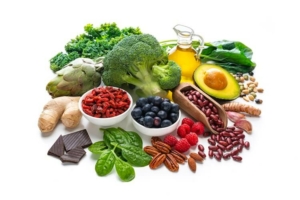What are the Best Nutrients for Hair Growth?

A few aspects of hair growth are out of your hands. Your genetics and age, for example, are set in stone and can’t be changed. Fortunately, there is one factor that is well within your control – the nutrients you consume. Nutrients have a significant impact on hair growth. And fortunately, you can choose which nutrients you take in.
How do vitamins and minerals help with hair loss?
Your hair is important for your self-image, but it’s not ultimately necessary for keeping you alive. Hair thrives in a well-nourished environment. But when your health is compromised, your body diverts nutrients from areas like your scalp to more life-sustaining vital organs. Therefore, good health keeps more hair on your head.
Although the hair you see on your head is made up of cells that are not “living,” those precious strands grow from tissues that are very much alive. Each strand grows from a follicle on the scalp, which is part of the body’s largest organ – your skin. Small blood vessels at the base of each follicle nourish the hair root to keep it growing.
The average person has about 100,000 hairs, all at various stages of growth. Hair grows, rests, falls out, and is replaced through a naturally occurring cycle. Some stages of development require specific vitamins and minerals to keep the process going smoothly.
As a result, your diet and health play a significant role in how quickly your hair grows. Good nutrition creates the framework for healthy hair and can help slow hair loss. So, while there’s no magic bullet that will regrow your hair instantly, there are nutrients that help keep more strands on your head.
Hair Growth and Nutrients
Some vitamins and minerals are more effective at keeping hair healthy than others. So, if you’re attempting to prevent hair loss or regrow your hair, a targeted approach is the way to go. Boosting your intake of specific hair-friendly nutrients offers you the best prevention for hair loss — and keeps you healthy overall. The following is a list of the best nutrients for hair loss.
Keratin
Hair and nails are primarily made of a protein called keratin, so it’s no surprise that keratin is a vital nutrient for strong hair. This structural protein provides the structure and strength required for hair health, making strands less likely to break off or become damaged. Without enough keratin, cells within each strand of hair overlap unevenly, making their bonds weak and vulnerable to breakage. Keratin — as well as nutrients that encourage keratin formation— allows more hair to remain on your head and keeps every hair shaft strong. (01)
Biotin
Vitamin B7 or vitamin H, otherwise known as biotin, aids in keratin production. Without enough biotin, the hair shaft becomes weak, brittle, and slow to grow. Keratin cells, also known as keratinocytes, are like the bricks that make up each strand of hair. Without enough materials to make the bricks, hair can’t grow or form well enough to maintain its strength. Although biotin deficiency is rare, excessive alcohol consumption and some medical conditions can result in a lack of biotin. Biotin supplementation, whether administered through topicals, shampoos, or orally, can boost hair growth and thickness. (02)
Collagen
Most people are familiar with collagen in regard to skincare, but collagen is also essential for healthy hair. In a recent study published in the International Journal of Trichology, targeted nutritional supplementation primarily consisting of collagen was found to increase hair density in participants with a hair loss condition called telogen effluvium. Collagen improves hair growth during crucial growth cycles and limits hair loss during hair’s telogen phase – when hair typically falls out naturally. (03)
Saw Palmetto
Individuals who experience male or female pattern baldness typically have an overabundance of a hormone called dihydrotestosterone (DHT). Excessive levels of DHT impact hair follicles by shrinking the follicle, increasing the chances of premature hair loss and preventing new growth. Saw palmetto, a plant extract, has been found to have DHT-blocking solid effects and can slow hair loss caused by DHT. For people experiencing problems with baldness, saw palmetto supplements may offer relief when used with other boosts. (04)
Vitamin A
Vitamin A is a powerful micronutrient that significantly impacts hair growth. The body breaks vitamin A down into retinoic acid and retinol, which both regulate hair follicle stem cells and hair growth cycles. Therefore, a deficiency in vitamin A may lead to poor hair growth and hair loss. Furthermore, oxidative stress may hasten hair loss – especially in the case of alopecia areata. Antioxidants like vitamin A can help counter oxidative effects on hair.
Vitamin D
Despite the fact that the human body generates vitamin D from sun exposure, most people don’t get enough vitamin D. Vitamin D deficiency can occur due to:
- A lack of vitamin D in the diet.
- Too little time spent in the sun.
- Difficulty absorbing vitamin D from food.
- Medical problems prevent the body from converting vitamin D.
- Medications that interfere with vitamin D levels.
Fortunately, vitamin D is also found in foods like eggs or fatty fish and in vitamin-fortified foods. Even then, however, some people still don’t obtain enough vitamin D to grow healthy hair. Vitamin D keeps hair follicles in good shape and maintains robust hair growth. A deficiency in vitamin D may result in hair loss and bald patches. (06)
Probiotics
Recent studies indicate intestinal (gut) health plays a more prominent role in overall physical health than previously thought. Within the intestinal tract are bacteria, called the “intestinal microbiome,” that depends on a specific environment to help break down food and keep the body functioning. An unbalanced microbiome can lead to inflammation, digestive problems, and skin conditions affecting the hair.
Probiotics are bacteria and yeasts ingested to keep the intestinal microbiome healthy and stable. Current research shows that regulation of the intestinal microbiome using probiotics can boost immunity, help treat a myriad of metabolic conditions, and may even help alleviate the symptoms of some mental health conditions. Healthy intestinal health through probiotics can also give you thicker, more lustrous hair! (07, 08)
Ashwagandha
According to a recent study published in the Journal of Clinical and Aesthetic Dermatology, ashwagandha supplementation was shown to reduce hair thinning in a cohort of both men and women. Data from the study indicate that supplements with ashwagandha can reduce hair loss on all types of hair, encompassing many ethnicities. At the end of the 24-week study, 83% of men and 79% of women showed improvement in hair quality, scalp coverage, volume, and thickness. (09)
Healthy Hair Through Nutrient Supplementation
The process of growing hair calls for specific nutrients. Without enough nutrients to feed the follicles, hair becomes brittle grows slowly. So, if you’re looking to keep your scalp and hair healthy, you’ll need to start from the inside.
Happy Head’s Hair Supplements offer the essential vitamins, minerals, and probiotics you need to strengthen and grow your hair. Formulated by our team of dermatologists, our daily Happy Head Hair Supplements come from natural ingredients like biotin, saw palmetto, and ashwagandha to nourish your hair. Subscribe and save today to supercharge your hair growth in 3 to 6 months for visibility thicker and healthier strands!
Sources:
(01) https://www.ncbi.nlm.nih.gov/pmc/articles/PMC6095591/
(02) https://www.ncbi.nlm.nih.gov/books/NBK554493/
(03) https://www.ncbi.nlm.nih.gov/pmc/articles/PMC9069902/
(04) https://pubmed.ncbi.nlm.nih.gov/11337315/
(05) https://www.ncbi.nlm.nih.gov/pmc/articles/PMC9324272/
(06) https://www.ncbi.nlm.nih.gov/pmc/articles/PMC5685931/
(07) https://www.mhanational.org/fitness-4mind4body-gut-brain-connection
(08) https://www.aafp.org/pubs/afp/issues/2017/0801/p170-s1.html
(09) https://www.ncbi.nlm.nih.gov/pmc/articles/PMC8903234/




